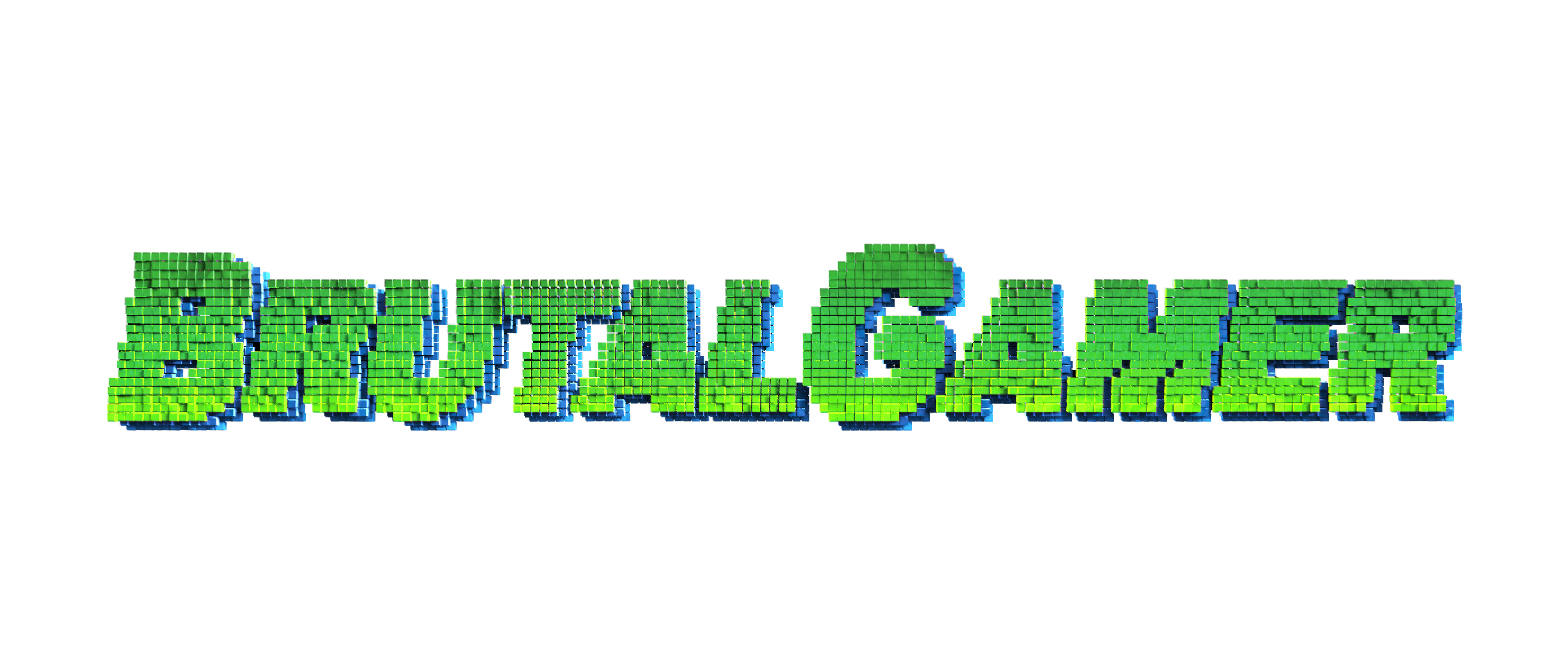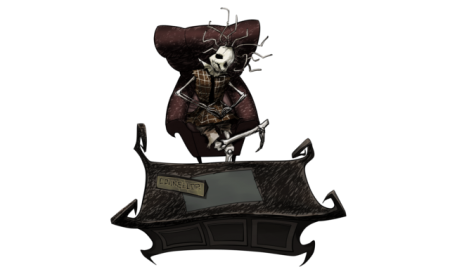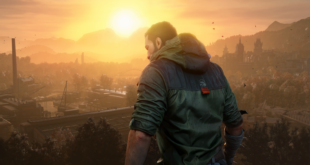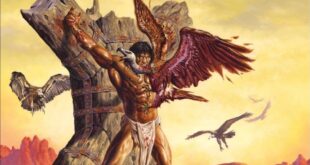We all love Kickstarter. Some amazing games and products have come out of the crowdfunding surge, and there’s a new one on the horizon. It only has another day or so left, and it’s almost there! I had a chance to talk with David Roth, the man behind this really awesome game called Our Darker Purpose. You can check out the kickstarter here, and pledge.
I’ve had a chance to play the demo, and I have to say it’s as incredible as I had hoped. The art is amazing, the gameplay is really fun, and it’s such a weird, funny, quirky game that I can’t stop playing. It’s like a less outright disturbing and kinda cooler Binding of Isaac.
__
Dan Spiler, BrutalGamer.com: Alright, well, why don’t we start with you introducing yourself and what the general premise of the game is.
David Roth, Avidly Wild Games: I’m a co-founder of Avidly Wild Games, the company that’s creating Our Darker Purpose. My co-founder Will Wu and I are making a game about girl surviving a journey through a bizarre, dystopian school in which the adults have vanished and the children are left to fend for themselves.
David Roth: It’s an action-RPG with rogue-like elements but also with permanent upgrades and customization.
Dan Spiler: A sort of “Lord of the Flies” meets Tim-Burton’s-School-For-The-Weird”, is how I think of it. With game mechanics.
David Roth: Yeah totally, we’ve been talking about Burton and Lord of the Flies since the very beginning!
Dan Spiler: It’s a very clear inspiration for the story.
David Roth: You know, another key piece behind the story is actually King Lear.
Dan Spiler: Really? Care to elaborate?
David Roth: That’s how we got the name Cordelia — and eventually Cordy — for our main character. And that story also deals with what happens when authority disappears and the kids can choose their own fate.
Dan Spiler: It’s not often this much depth is given to the story for a rogue-like.
David Roth: Yeah and of course it’s tricky trying to get story into a rogue-like because of the nature of the game.
Dan Spiler: Right. Rogue-likes are traditionally very mechanic-heavy and story-lite. But tell me more about Cordy. Who is she? and why is she without adult supervision?
David Roth: Cordy is an extraordinarily shy student at the Edgewood Home for Lost Children. Her earliest memories are of being carried through the dilapidated gates of the school and being raised within.
Dan Spiler: So this poor child has spent her whole life in this place?
David Roth: Exactly — and to a certain degree she’s been protected by her teacher, who tries to inspire hope in the students. When the teacher steps out of the room and doesn’t come back, Cordy is effectively on her own.
Dan Spiler: So what’s a girl like Cordy to do?
David Roth: So her goal is to figure out what happens in the school, which requires reaching the Administrator’s offices on the top floor. The Administrators are a shadowy group who continuously taunt you through-out the game — they were already bad news before the teachers disappeared, and it’s suggested they may be behind the recent events.
Dan Spiler: So the shining light, Cordy’s protective teacher, disappears, and it’s up to her to figure out what’s going on. That’s a lot for the poor girl to handle. But that’s a really story-heavy premise for a rogue-like. I’m curious as to the design decisions you made. Can you elaborate on your process, with respect to why you chose the rogue-like game type, and why you then further added consistency to it with the upgrade mechanics and branching level-paths? What not go with something that traditionally would have made more sense, like a point-and-click adventure game or a more linear, level-based game? Good sir, why did you choose to make the game the way you did?
David Roth: First, we love re-playability — there’s something exciting and freeing about a game where it’s accepted that you have to restart a lot, because you can try out a lot different strategies. Second, we love the depth you can get with a rogue-like through randomization — the potential that every game you might find something you’ve never seen before on an early level.
Dan Spiler: So why then the permanence of the level-structure and the upgrades?
David Roth: So a quick clarification — the design of each level is random, and so is the broader “map” you take up through the school, though you’ll see tougher environments in higher levels. As for the permanent upgrades, it’s to give players the added satisfaction of potentially accomplishing something that benefits them in the long-term every game. Put differently, it’s exciting to get stuff that’ll be there the next time you play.
Dan Spiler: For sure. As for the levels, I meant more in terms of the branching paths you had in one of the screenshots. There’s different icons to denote…something, I’d imagine. While each level is random (it IS a rogue-like), I’m curious as to the branching itself.
David Roth: Oh yeah! So that map of branching paths is going to be randomized in every game, but every game will have consistent story elements (you’ll always hit a few specific bosses, for instance). But the player can choose different levels on the way in the hopes of getting different kinds of items or facing (or avoiding!) certain types of enemies. And different levels also give you different reward credits to trade with your kindly scarecrow guidance counselor for permanent upgrades. The real point is to give the player broader tactical decisions within a rogue-like.
Dan Spiler: Very cool! Can you tell us more about these different enemies Cordy will face as she searches for the truth? From what I saw, there’s the psychotic faculty, there’s the Capulets, there’s the Woundworts, and some sort of mechanical dragon made out of…bike parts? And desk-spiders.
David Roth: There’s a lot of weird stuff going on at Edgewood. In the aftermath of the teachers vanishing, different students have turned to their varied worst impulses — and formed different factions trying to take over the school. So the Woundworts for instance were tough bullies, and now they’re using makeshift weapons (like thrown globes). The Capulets were trendy and manipulative, but their clique has become a cult, and they’re doing stuff like creating the spider desks. Then you’ve got holdovers from when things were NORMAL at Edgewood — like the cardboard dragon that came to life during a school play. This is just the beginning of course, there are more factions coming.
David Roth: By the way populating this school is a huge amount of fun.
Dan Spiler: I can imagine level-building (to the degree that you would do it for a rogue-like) would be a blast. It’s really exciting stuff. And this leads to my thoughts on the art: it’s absolutely incredible. The art style is really unique and fantastic; it blends a lot of the creepy style of, say, Binding of Isaac or a Tim Burton movie. What made you decide on this particular art style? Where there other styles that you debated on but ultimately discarded? Or Did you know from the get-go that this was what it was going to look like?
David Roth: Artistically, we started with the idea of a hand-drawn game that had a Burton-like feel to it. We don’t have the resources for fancy 3d graphics or anything, so we wanted to go in a different direction. Edward Gorey is another huge influence. There are also great examples in gaming — Don’t Starve, Limbo, Binding of Isaac. Movies like Coraline too. We’re trying to use a cross-hatched style that’s dark but also adorable without being cute, which is tricky. But we considered a lot of different styles: silhouettes are really cool, for instance, but tough to do in a top-down game. Pixels are also great but we preferred drawn given the theme. Lots of other influences too, of course, this is just what comes to mind. At one point I was walking down the street and took a photo of a construction barrier and said this should be in the game.
Dan Spiler: I figured those were your influences, and you’ve certainly pulled off a solid art style thats adorable will still being creepy. And random photos of things to add to your game or design around…I’ve been there. Now, with all of these gorgeous-looking enemies poking about, can you expand a bit on some of the power ups and other upgradeables in the game to help Cordy in her journey of exploration and discovery (and fighting feral children and psychotic faculty)?
David Roth: So walking around you can find items that reflect the environment of Edgewood — the makeshift sock puppet that doubles your attack, for instance. Then there are the perks you can pick each time you level up. These are based on classic books with parody titles, like “Tender is the Slowing of Projectiles.” Finally, you can take permanent classes to change your stats, like “The Theory and Practice of Bravery Erosion.”
Dan Spiler: I love the comedic aspect, it pairs well with the creepy-yet-adorable visual style. I’m curious though: what was the original concept of the game (in the academic context), and what has changed to the game you’re building now? You mentioned at somewhere that this grew from a game-school project, if I’m recalling correctly.
David Roth: It started as an independent study focused on gaming, and we decided really early on to build a game. We’ve gone from planning to just build out a level to developing a fully realized game. The game has shifted from focusing purely on Cordy as a character to focusing as much on the school that she inhabits. That has a lot to do with what kind of story you can tell in the context of a rogue-like, which you brought up before. It’s about the ambiance as much or more than about narrative, at this point. Level select, permanent upgrades, etc all developed during the process as well. We didn’t know that would be there in the beginning.
Dan Spiler: So it’s been an iterative process from the start; no scrapping entire pieces and restarting, just building on the old and tweaking as you go?
David Roth: Haha, you could say, but when I look at our old versions it often feels like we threw out everything. It’s amazing how much it can change from iteration to iteration.
Dan Spiler: No kidding. Well, it wasn’t just you working on this, either. You mentioned Will Wu as a co-founder as well, and then there’s the artist. Could you put names to roles, and tell me what each person has contributed to the design/development of the game?
David Roth: Will focuses on the game design and actually getting this thing built. I focus more on the story and theme. Of course this is all pretty flexible. Our lead artist is Caitlyn Kurilich, and she’s been fantastic with character design and making it fit into our other elements. We’ve worked with too many awesome artists to shout them all out here, but their portfolios are all on our Kickstarter. (http://www.kickstarter.com/projects/1750899614/our-darker-purpose-0)
Dan Spiler: And finally, since you’re gone from basic game idea to creating a company and running a kickstarter/attempting to get on Steam’s Greenlight, what are some words of wisdom to people just starting out in the industry, or those who want to get into the games industry?
David Roth: We don’t feel qualified yet to share any meaningful words of wisdom, other than “just go for it.” Ask us again in a few months!
Dan Spiler: Haha, I most certainly will. Well, that about wraps it up. Was there anything else you wanted to add?
David Roth: One thing — we’re extraordinarily indebted to all of our supporters on Kickstarter, both for contributing and for spreading the word and for all of your good advice so far. You guys are amazing and this would be beyond impossible without you. You keep us going.
Dan Spiler: And congratulations of being at around 1/5th of the way to your goal!
David Roth: Dan, thank you!! We really appreciate you taking some time to chat!
 BrutalGamer Bringing you Brutally Honest feedback from today's entertainment industry.
BrutalGamer Bringing you Brutally Honest feedback from today's entertainment industry.






